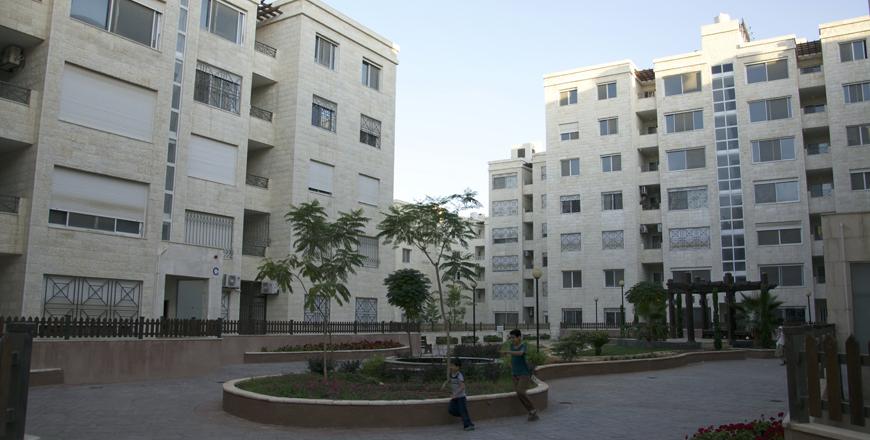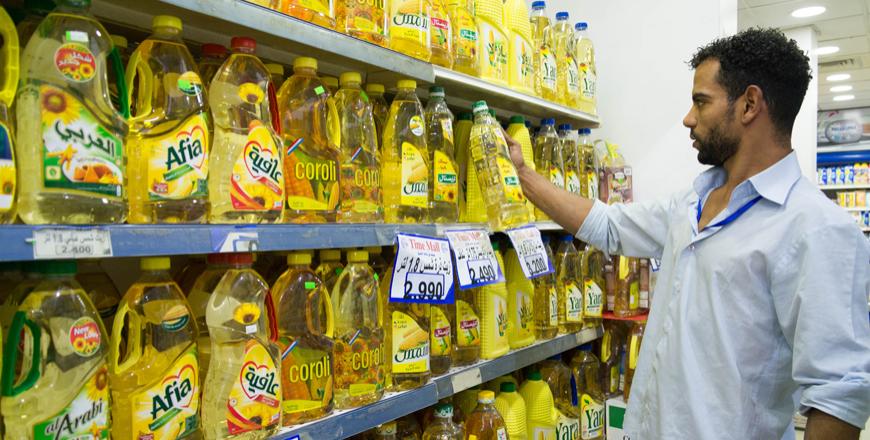You are here
Jordan Vegetable Oil Industries suing traders, distributors to collect JD3.2m
By Samir Ghawi - Aug 24,2015 - Last updated at Aug 24,2015
AMMAN — Jordan Vegetable Oil Industries Company (JVOI) is suing distributors and buyers for about JD3.2 million owed to it within the normal course of business activity.
In a disclosure to the Jordan Securities Commission, the company said the lawsuits entailed dues in the form of receivables and bounced cheques.
According to the balance sheet as of June 30, 2015, JVOI's receivables totalled JD3.5 million.
The commercial receivables as shown in the balance sheet at the end of last year amounted to JD5.5 million.
Out of this figure, JD2.9 million was deducted as a provision for doubtful assets, leaving net commercial receivables at JD2.6 million.
The total became JD3.5 million when around JD0.8 million in cheques under collection and other dues were added.
At the end of 2013, net commercial receivables was higher at JD3.8 million.
The auditor said in notes accompanying the 2014 balance sheet that the company expects to collect the doubtful assets in full.
"The company filed lawsuits to collect the doubtful assets it is owed by debtors," the notes stated. "JVOI obtained some guarantees from a limited number of clients but for the remaining receivables, the company does not require security."
Board Chairman Kameel Saad Al Deen told the shareholders in the annual report that the company was continuing a precautionary approach by computing a yearly provision against previous dues whose collection remained doubtful.
In both 2014 and 2013, JD250,000 were added each year as doubtful assets and much smaller amounts were written off as bad debts.
Despite the large financial obligations owed to JVOI by several traders in the market, the company remained profitable even to disburse cash dividends to shareholders at a rate of 7 per cent in recognition of its 2014 performance as recommended by the board of directors and approved by the shareholders this year.
Mid-year results showed a JD0.4 million net profit, slightly higher than the JD0.3 million registered at the end of June 2014 despite a slight decline in sales to JD2.5 million from JD2.6 million.
The impresssive spots in the income statement as of June 30, 2015 were the ability of the company to reduce production costs and purchases to JD1.6 million from JD1.9 million besides financing expenses.
The performance last year was also positive as net pretax profit came at JD0.6 million compared to JD0.4 million at the end of 2013 although sales were lower at JD5.6 million from JD5.7 million.
Local sales amounted to JD5.3 million and exports JD0.3million.
The board of directors mentioned in a summary report that output in 2014 reached around 3,800 tonnes of vegetable ghee, higher than the 3,600 tonnes of ghee and vegetable oils produced in the previous year.
The summary report estimated the company's market share for its Al Ghazal vegetable ghee at 50 per cent and said JVOI froze oil production due to the present conditions in the market.
Saad Al Deen indicated in the annual report that market competition was stiff and that traders resorted to importing from neighbouring countries at competitive prices.
He said some local industries were selling poor quality products at prices that cannot be challenged.
"We hereby renew our call to all parties concerned with the industry to take the measures that safeguard the local industry," he wrote in a foreword.
"Dumping and flooding local markets with imports negatively affects the volume of factory sales," Saad Al Deen said.
The chairman also urged control over locally packed products that do not conform to standards and specifications
He stressed that the company's competitive position became difficult because some traders were only operating packing units and not plants noting that JVOI cannot perform the same foul methods.
As such, the two risks that face the company during 2015 and the year after were listed as inability to collect some previous receivables and price competition.
Future plans include lowering electricity, fuel and labour costs, and increasing market share through producing a new type of ghee and launching promotion campaigns.
"Based on the projected budget, local sales and exports are expected to rise and generate profit as the company is continuing on the same course," the report said, mentioning the United States, Canada among the markets abroad in addition to Gulf Arab states.
The report detailed certain aspects of JVOI's operations indicating that three Malaysian corporations were key suppliers and that Habibeh Sweets and Al Nijmeh Sweets were among its main local customers besides wholesalers.
JVOI, operating at King Abullah II Industrial City in Sahab where it employed 65 workers at the end of 2014, estimated capital investment at about JD6.2 million at the end of last year.
The factory was established in Amman in 1993 as a subsidiary of a Palestinian firm established in Nablus in 1953. In 1998, the two factories were disconnected and each became a separate entity.
The shareholders who owned more than 5 per cent of JVOI's JD4 million capital at the end of last year were: Sabih Taher Al Masri (45.1 per cent) and Palestine Development & Investment Co. (17 per cent).
Financially, assets as of June 30, 2015 totalled JD6.1 million, of which JD1.5 million were property and equipment as well as real estate investments.
Current assets included JD0.9 million of inventory and JD3.5 in receivables as mentioned above.
Current liabilities, totaling JD0.7 million, were mostly accounts payable and no bank debt although the company enjoyed several lines of credit from the Arab Bank and Union Bank.
Shareholders equity, totaling JD5.4 million, included JD0.5 million retained earnings and JD0.9 million mandatory earnings.
Related Articles
AMMAN — Al-Mehanya for Real Estate Investments and Housing Co.
AMMAN — Al-Qarya Food and Vegetable Oil Industries Co.
AMMAN — Three shareholders, out of 357 investors, decided this month to overhaul First National Vegetable Oil Industries Company (FNVO).&nbs
















